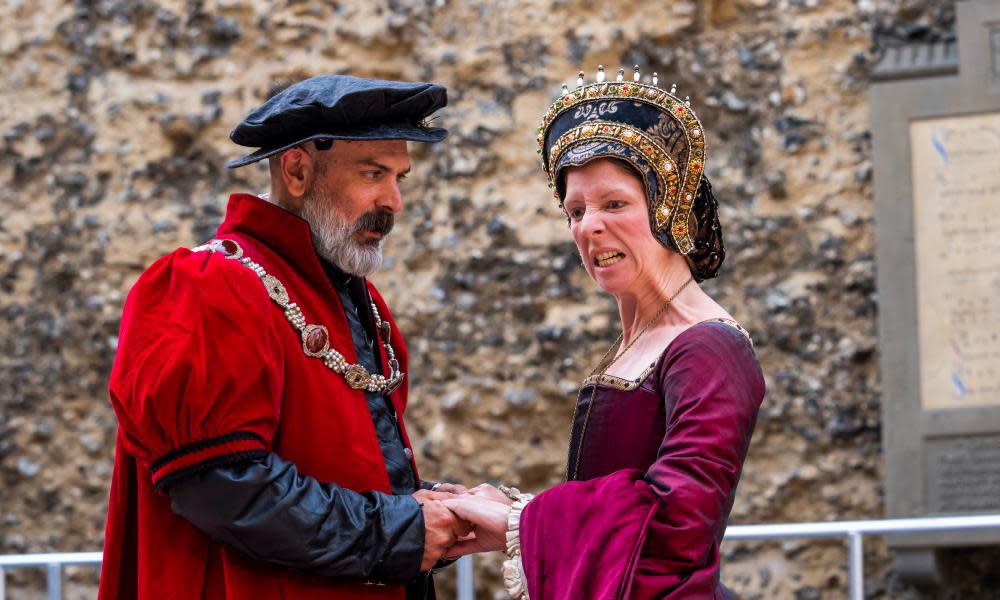The Last Abbot of Reading review – Tudor history goes back where it came from

With so many people now knowing the beginning, middle and end of Henry VIII’s breach with Rome from the success on page, stage and screen of Hilary Mantel’s Thomas Cromwell trilogy, conventional dramatic tension is impossible. So contemporary retellings need a fresh perspective. Channel 5’s recent Anne Boleyn injected racially bold casting, and now Beth Flintoff’s version for Berkshire-based group Rabble Theatre employs unusual frames – narrow and broad.
For this site-specific production, the ruins of Reading Abbey form a gap-walled amphitheatre, staging the final weeks in the life of Hugh Faringdon, the titular last abbot of Reading. A pal of King Harry, he survived the first phase of the sacking of the religious houses, but knows that tyrants have loyalty only to their own continuation.
In a reading that goes far beyond Reading, Flintoff also explores the Reformation as a metaphor for Brexit. The king plans to “take back control” from the “elite” Catholic church, reforms frustrated by the power of the trading bloc of monasteries.

Apart from the paradox of monarchical populism, the jeopardy of this gloss is that it makes David Cameron a holy martyr whose shin bone may one day be a revered relic. But, though Boris Johnson so far has half as many weddings as Henry VIII (and joined the Catholic church for the third), there are enjoyable echoes in Alex Hughes’s portrayal of the monarch as a brutally humorous giant schoolboy, appalled to find that Timothy Allsop’s dignified, agonised abbot has moral absolutes. Dominic Allen is malevolently oleaginous as Dr London, head of the English Inquisition.
A centrally masculine story is feminised by narration from the abbot’s mother, Alice (Joanne Howarth, engagingly commanding), and the parallel story of an imperilled neighbouring community of nuns.
Outdoor summer theatre mirrors cricket in spectators’ nervous skyward glances and rustling fumbles for rainwear, with the difference that close of play is reached even during a first night deluge. While Mantel’s mantle is not threatened, this atmospheric, strongly acted show is a model of theatre rooted in and illuminating its locality.
At Reading Abbey Ruins until 3 July.


